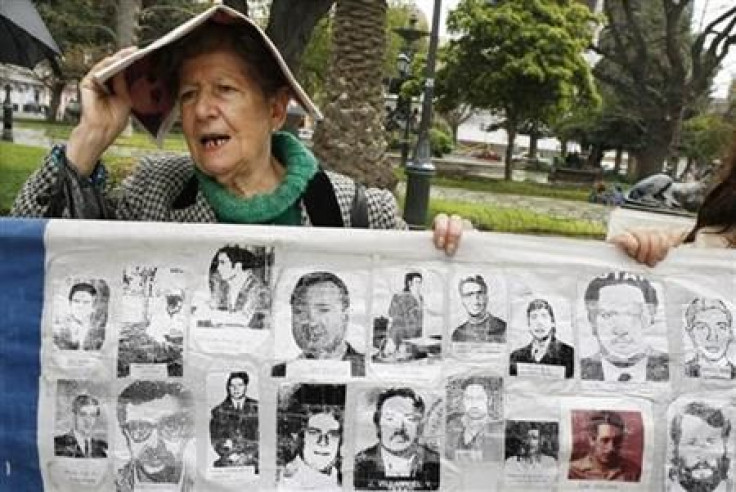Chile's Own 9/11: When The U.S. Backed A Brutal Dictator

A court in Chile has confirmed that former President Salvador Allende committed suicide by shooting himself during the coup the ousted him from power in 1972 and replaced him with Gen. Augusto Pinochet.
Forensic tests on Allende's exhumed body finally concluded the long-debated issues.
The court's ruling coincided with the 39th anniversary of Allende's death - September 11.
While the U.S. and many other countries around the world associate the date "Sept. 11" with the terrorist attacks that occurred in 2001, the people of Chile are reminded of their own tragedy that happened on that day in 1973.
The incident in question refers to the U.S.-backed coup d'état that ousted democratically elected President Salvador Allende and installed the dictator Augusto Pinochet, who ruled the country with an iron fist for over 15 years.
Under Pinochet's reign, thousands were imprisoned, tortured, murdered and disappeared in an attempt to crush all political opposition. A Chilean commission investigating human rights abuses, estimated that there were over 40,000 victims of the military regime, 3,000 of whom were killed or disappeared, the BBC reported.
Pinochet received the support of the U.S. government because he embraced economic policies that favored U.S. interests, such as privatizing national industries and allowing American corporations to come in and reap massive profits, while only enriching an elite few in Chile and leaving the majority of people without social safety nets, labor rights or economic security.
Allende had dared to stand up to the neo-liberal economic model prescribed to developing countries around the world by the U.S. government via corporate-funded economists who envisioned these countries as new markets to be exploited for profit rather than actually developed. Allende wanted the Chilean people to benefit from the wealth of its national industries and natural resources, and for this he became a pariah in the eyes of the U.S.
The U.S. had engaged in a campaign of economic sabotage, using financial institutions to isolate Chile while Allende was in power. Failing to coerce his capitulation, it encouraged Pinochet to take over. Once Pinochet was in power, the financial tap was turned back on.
The Pinochet regime did not maintain power because its economic policies were successful, but because it ruled through oppression and with the economic backing of the U.S.
This is not a history lesson to diminish the memory of those who died 11 years ago in the Twin Towers, the Pentagon and Flight 93, but to honor the lives that were lost under a brutal regime propped up by the U.S. government. There is no ownership over a date, and past tragedies cannot be paved over by newer ones, not as long as we can still remember them.
© Copyright IBTimes 2024. All rights reserved.











